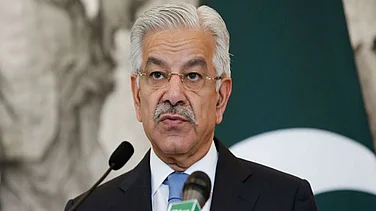Protests against the Waqf (Amendment) Act broke out in several parts of West Bengal on Friday, where agitators set vehicles on fire, disrupting road and rail traffic. At least 10 policemen were also injured while trying to control the mob, officials told PTI.
In Murshidabad's Suti, the demonstrations took a violent turn when the protesters assembled despite prohibitory orders and blocked roads, hurled stones at security personnel, and torched police vans and public buses during processions.
What Did The Police Say?
Citing a senior police officer PTI reported that the trouble started when one particular community gathered after Friday prayers and staged protests against the Waqf (Amendment) Act, blocking a stretch of National Highway-12 from Dakbanglo More in Shamsherganj to Sutir Sajur More.
"The protests turned violent after the agitators hurled stones at a police van, resulting in a clash in which around 10 policemen were injured," he said.
"Police had to lathi-charge to bring the unruly mob under control and later use tear gas shells when some protesters threw bomb-like substances at them," he added.
Reports suggest that some police personnel were compelled to take shelter in a nearby mosque amid the violence, as the district administration requested the BSF to intervene to restore normalcy.
"Things are under control now. There is heavy police deployment in the area. We are conducting raids to nab those behind today's violence," another official told PTI.
Internet Services Suspended
Earlier this week, Internet services had been suspended since the unrest happened in Jangipur and would continue along with the prohibitory orders.
Where Did The Protest Happen?
In Malda district, the protesters sat on railway tracks, leading to disruption in train movement, while they “attacked and vandalised” a police vehicle during a rally in Amtala in South 24 Parganas district on Friday afternoon.
In the New Farakka-Azimganj section of Eastern Railway, train services were also affected, owing to obstruction and vandalism by a large group of people between Dhuliandanga and Nimtita stations.
In Kolkata, students of Aliah University staged a protest against the Act at Park Circus, while rallies were also taken out in the Khidirpur area.
West Bengal Governor Reacts
West Bengal Governor C. V. Ananda Bose issued directions to the state government to take immediate and effective action against miscreants responsible for disturbances in sensitive areas in Murshidabad, Malda and South 24 Parganas districts.
The governor also reached out to Union Home Minister Amit Shah over the matter and held discussions with Chief Minister Mamata Banerjee, the official told PTI.
"I have been receiving disturbing reports about some people taking law and order in their hands in some parts of West Bengal. Protest is welcome in democracy, but not violence," he said.
"Public order cannot be disturbed and people's lives cannot be tampered with in the name of protest. Strong action will be taken against the miscreants who think that they can take law in their hands," Bose said in a video released by the Raj Bhavan," he added.
What Did The State Government Say?
Meanwhile, Trinamool Congress leader Kunal Ghosh has appealed to protesters to maintain peace ahead of Mamata Banerjee's crucial meeting with imams in Kolkata on April 16, India Today reported.
Waqf (Amendment) Act
The Waqf (Amendment) Bill was recently passed by the Lok Sabha and the Rajya Sabha after marathon debates in both Houses of Parliament. The opposition parties protested against the bill by saying it was ‘discriminatory against Muslims’. Congress leader Sonia Gandhi criticised it, calling it an 'open attack on the Constitution'. But the BJP defended the bill, saying that the bill aims to bring transparency, reduce corruption and better manage Waqf properties.














